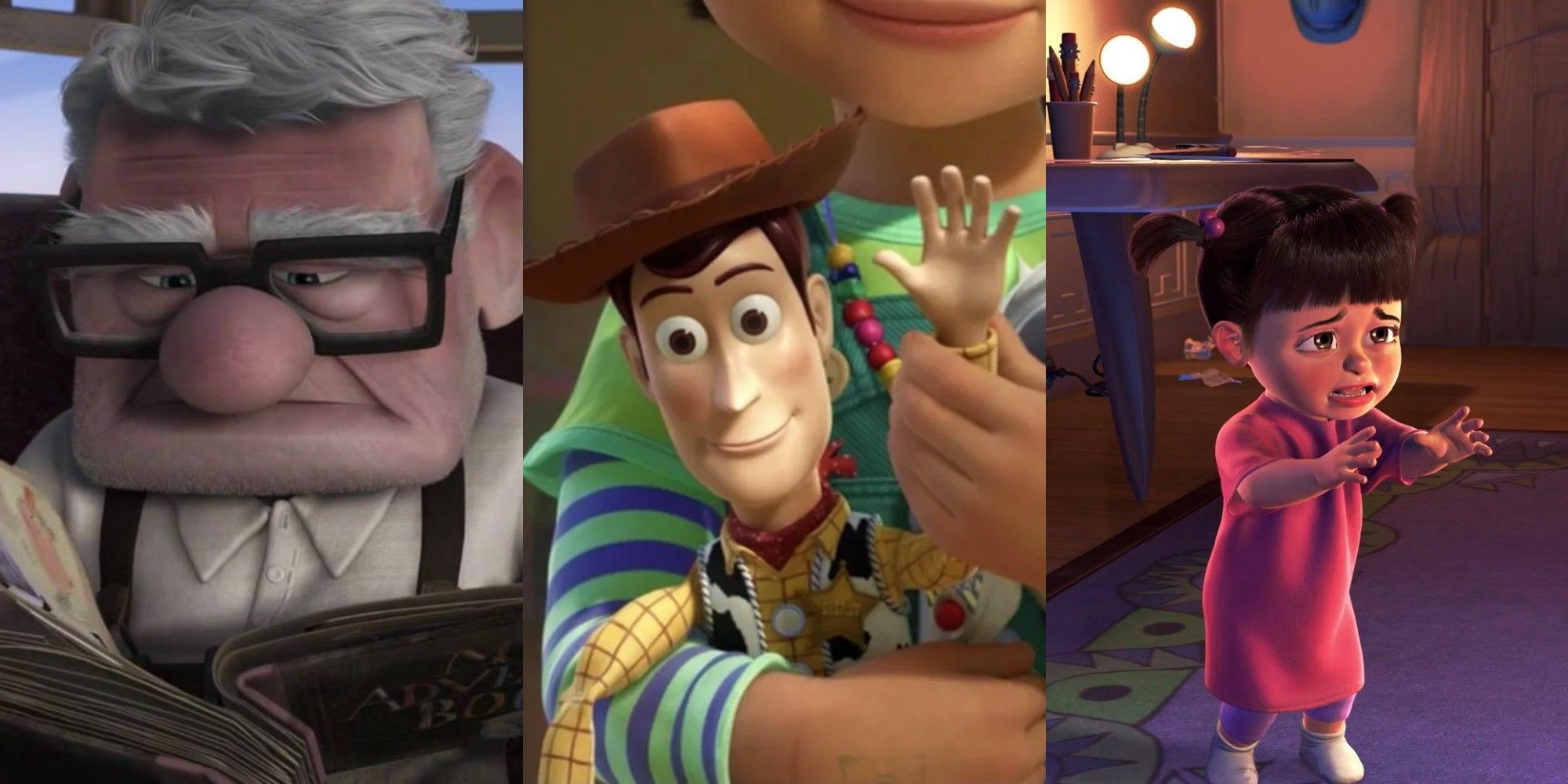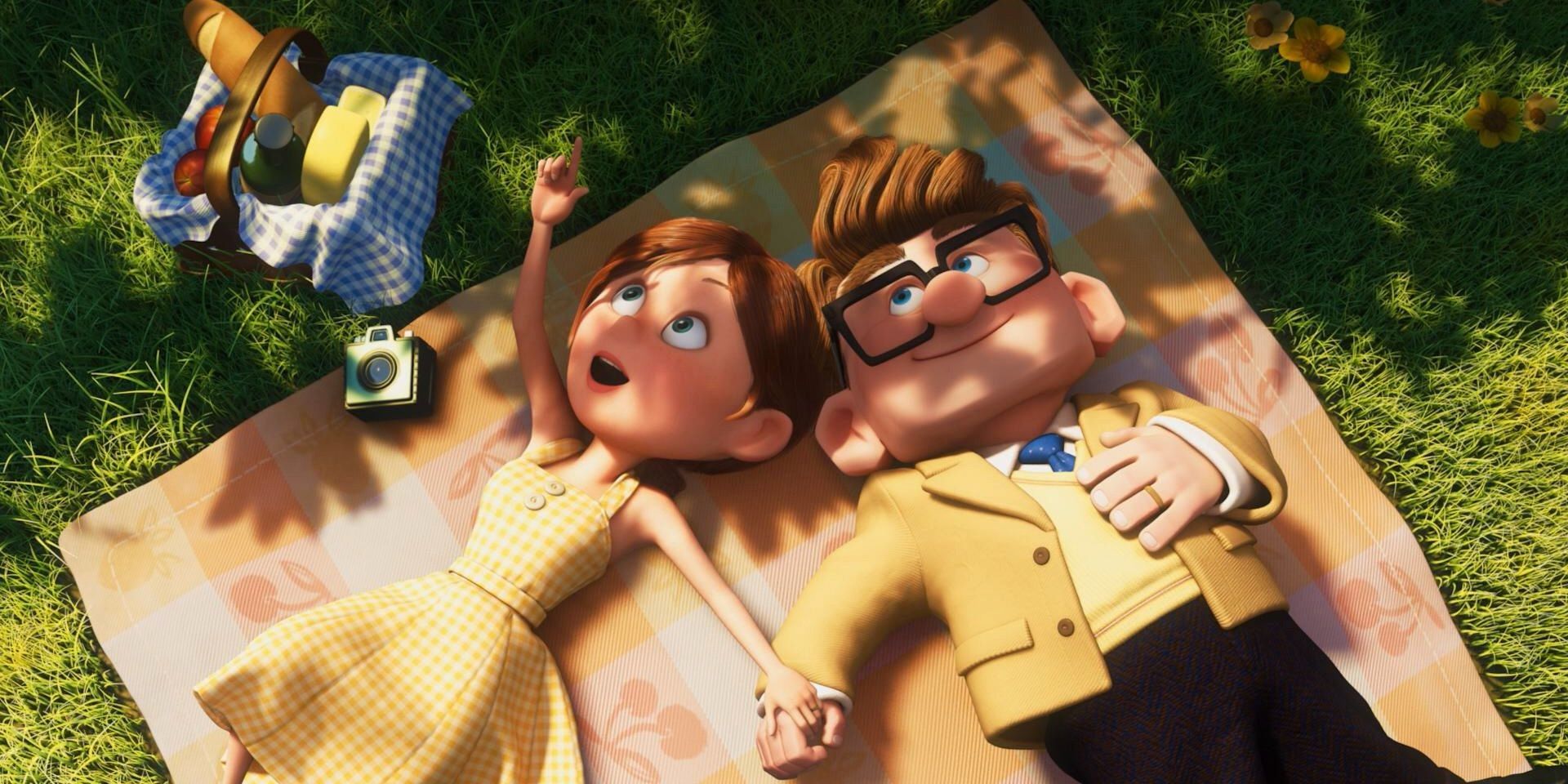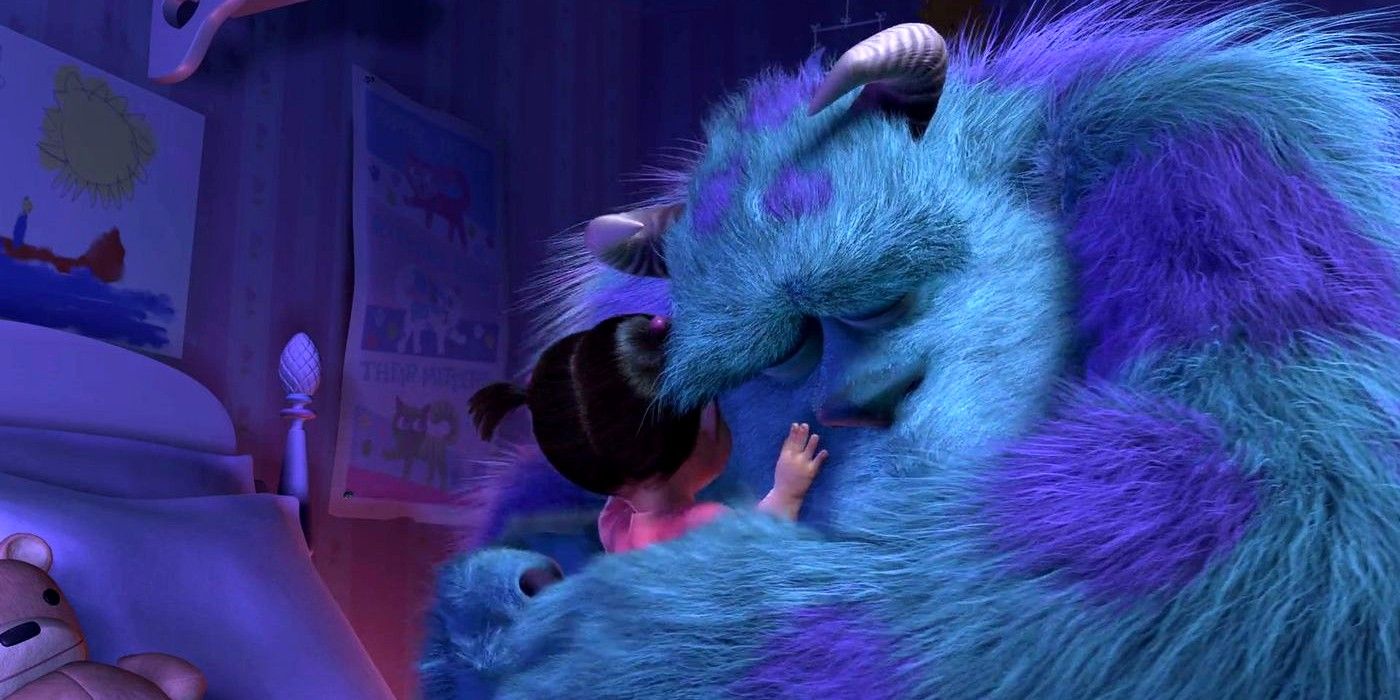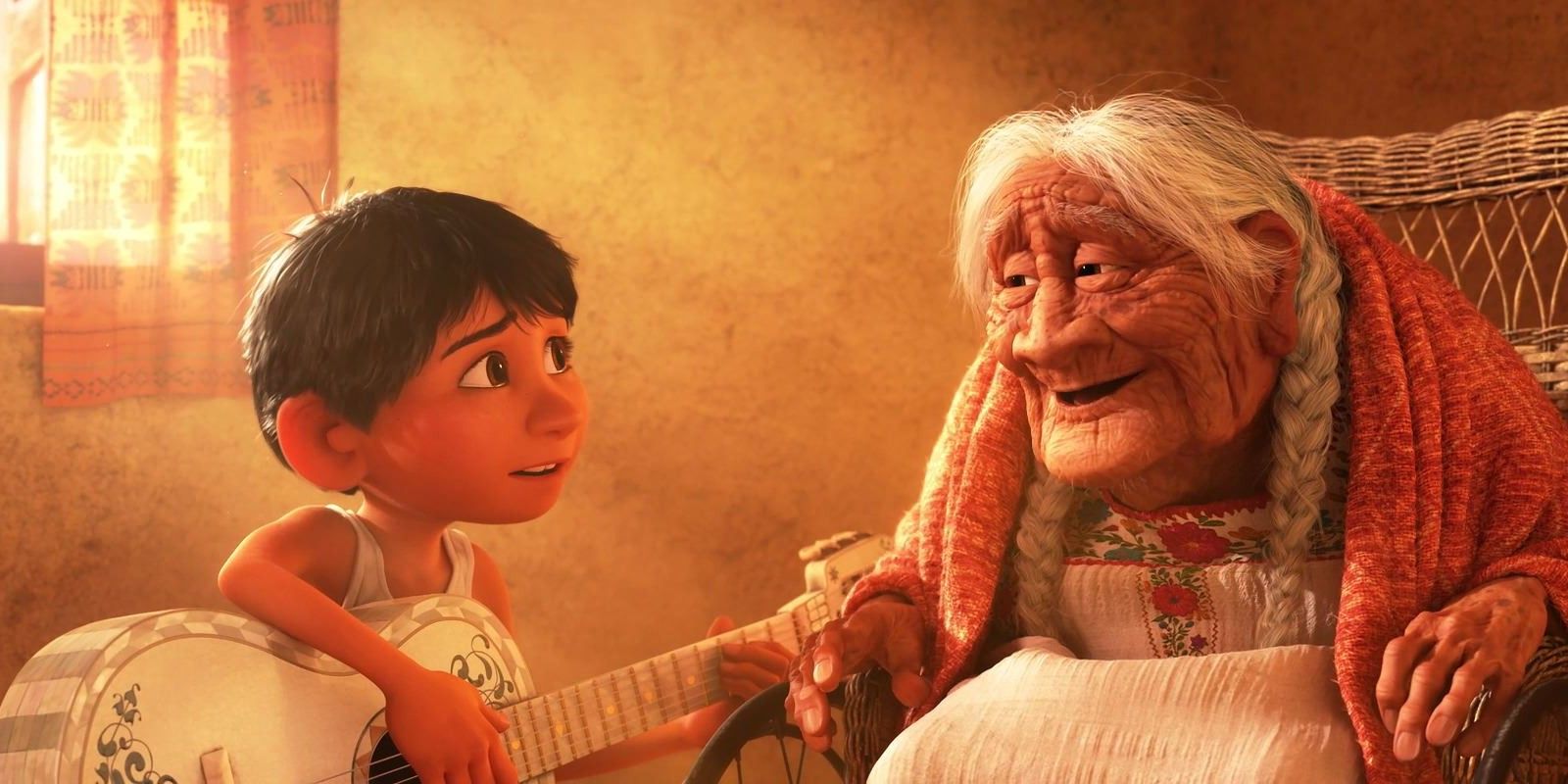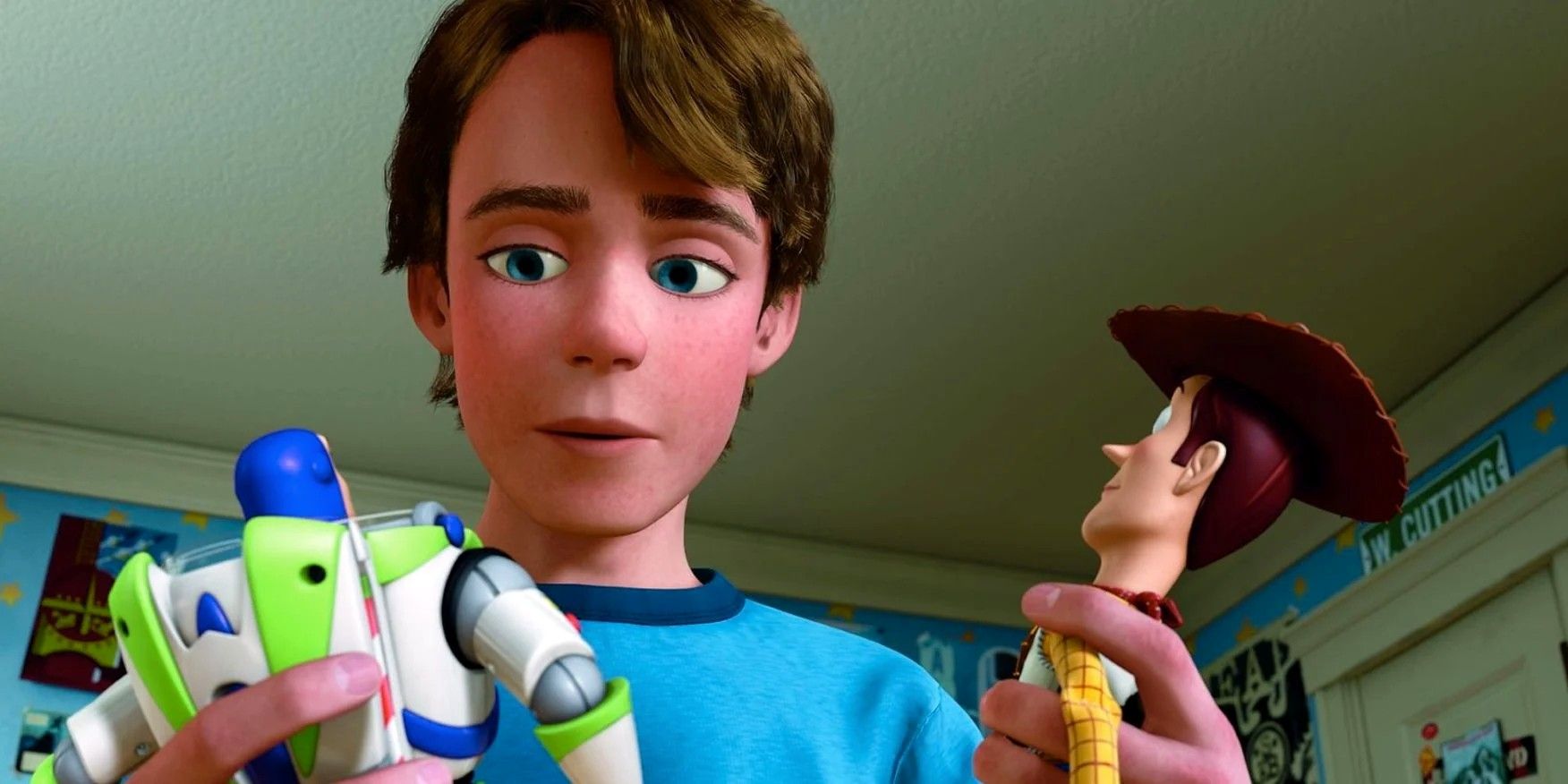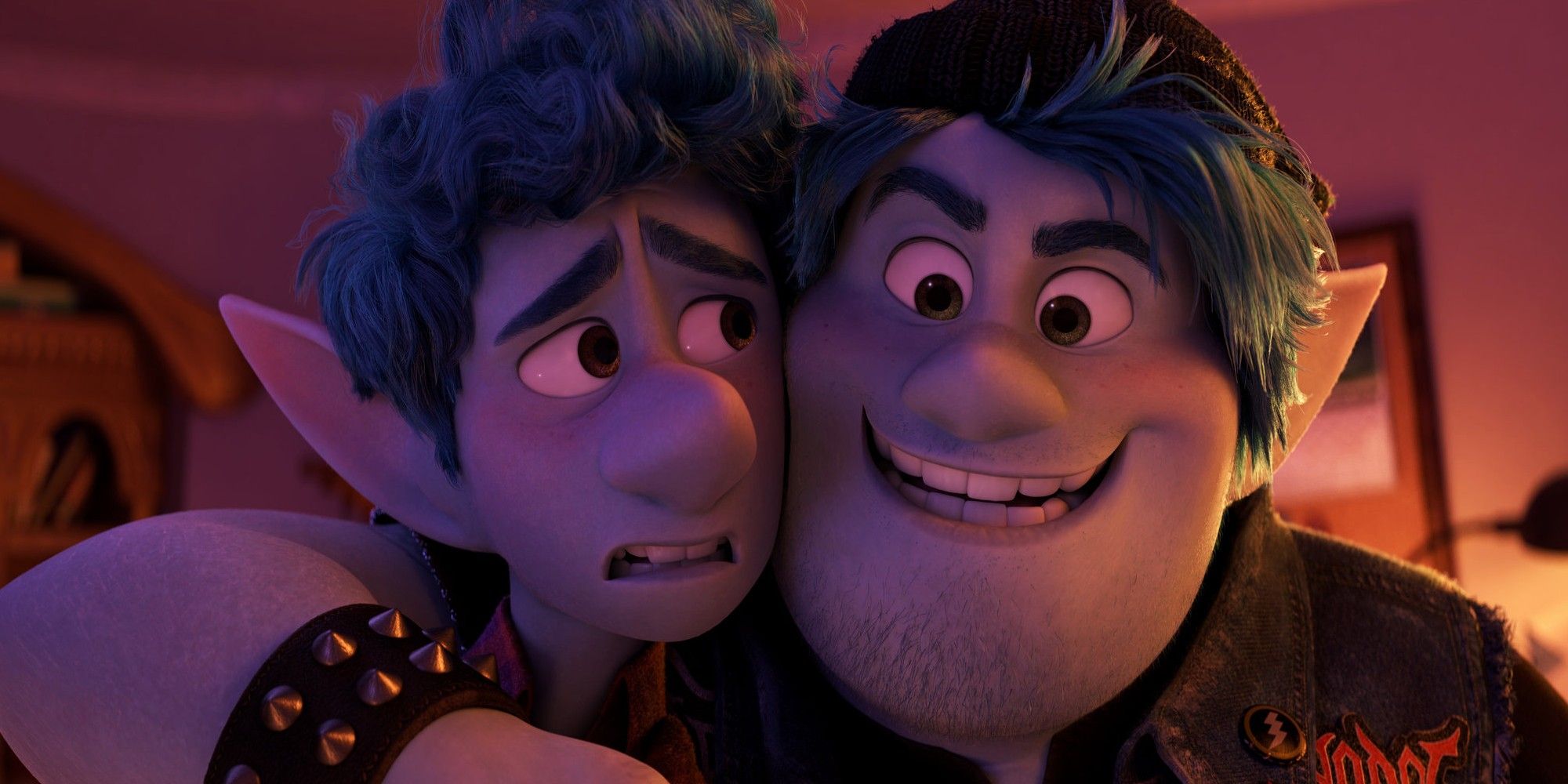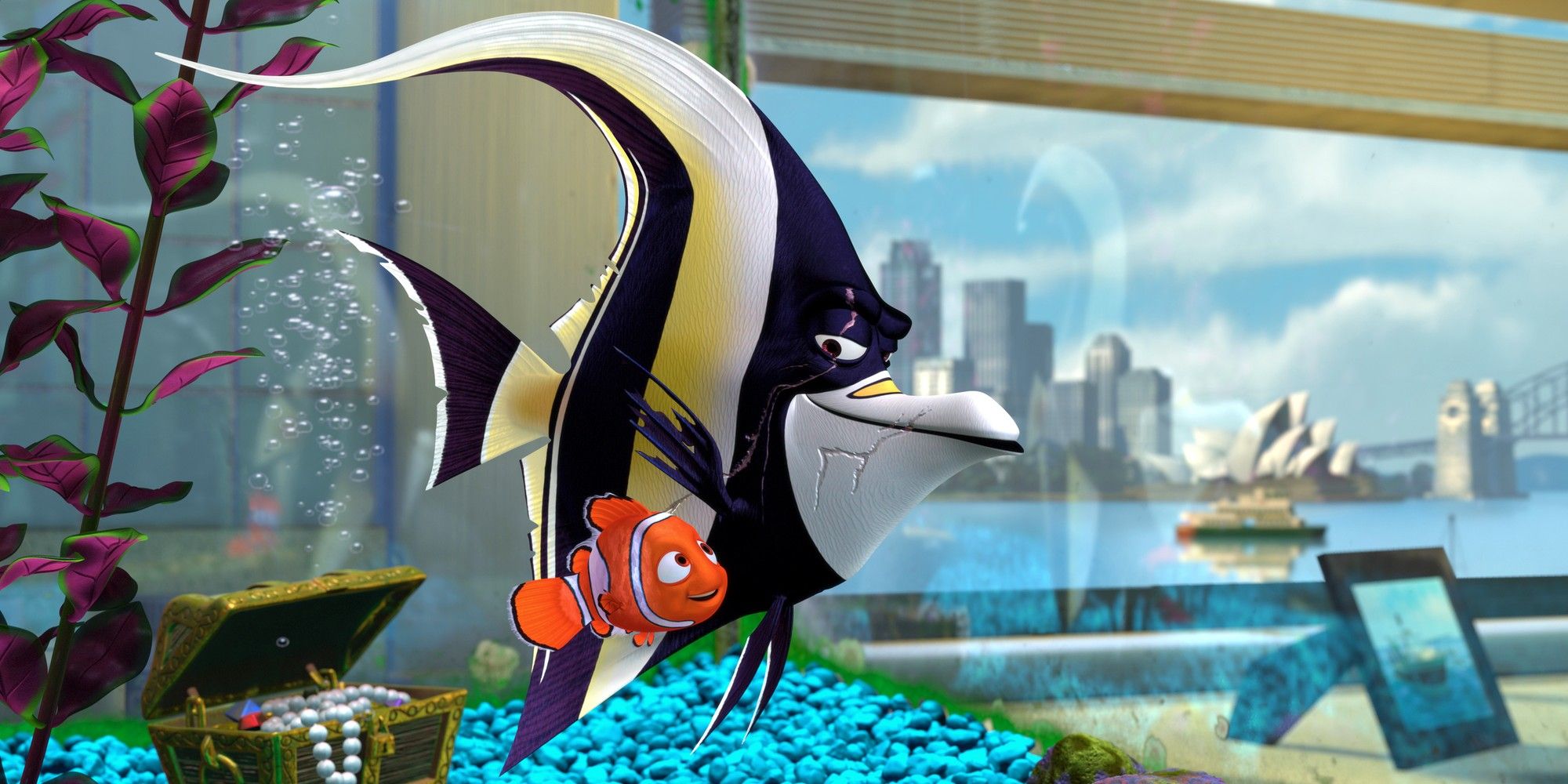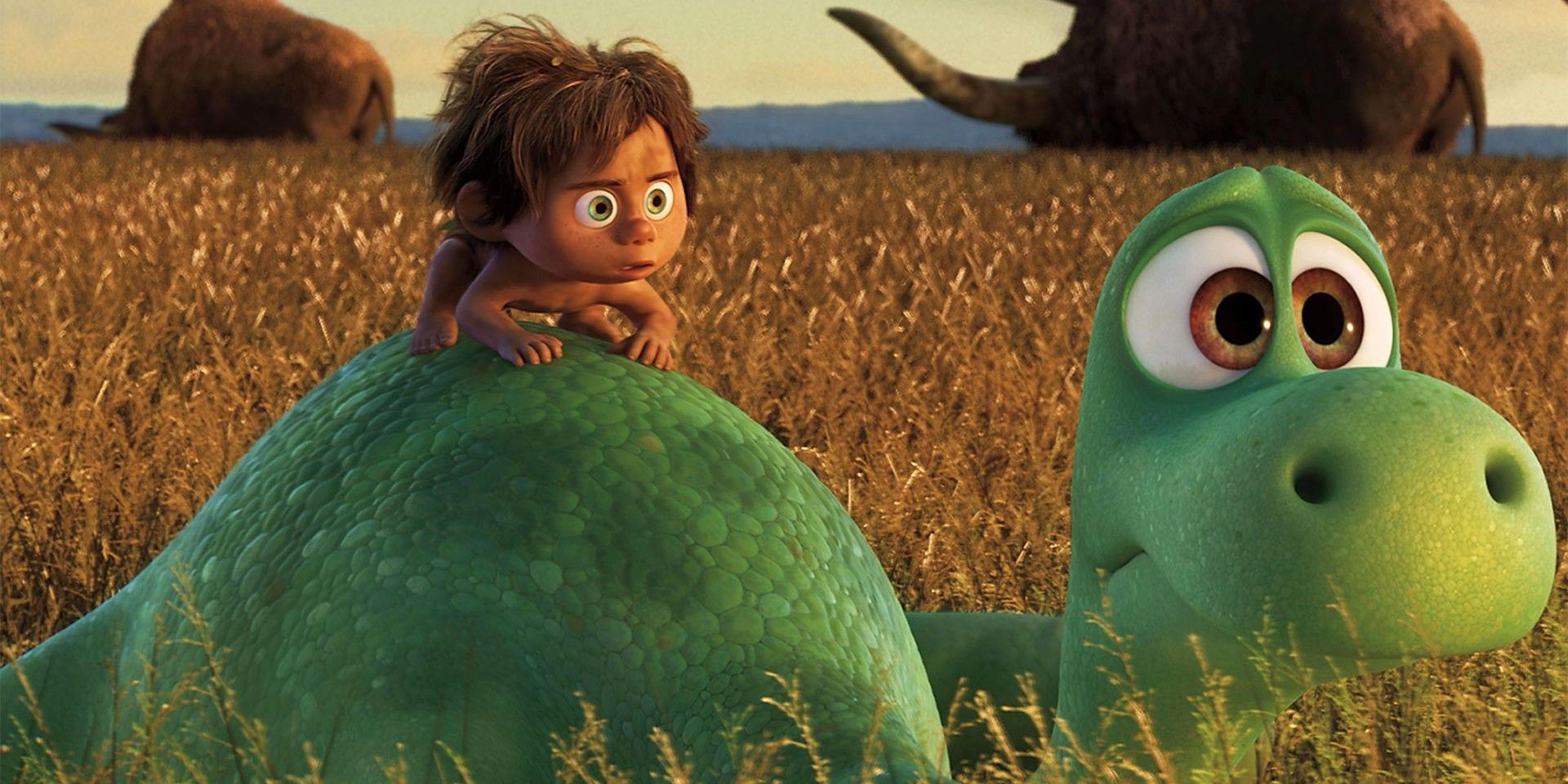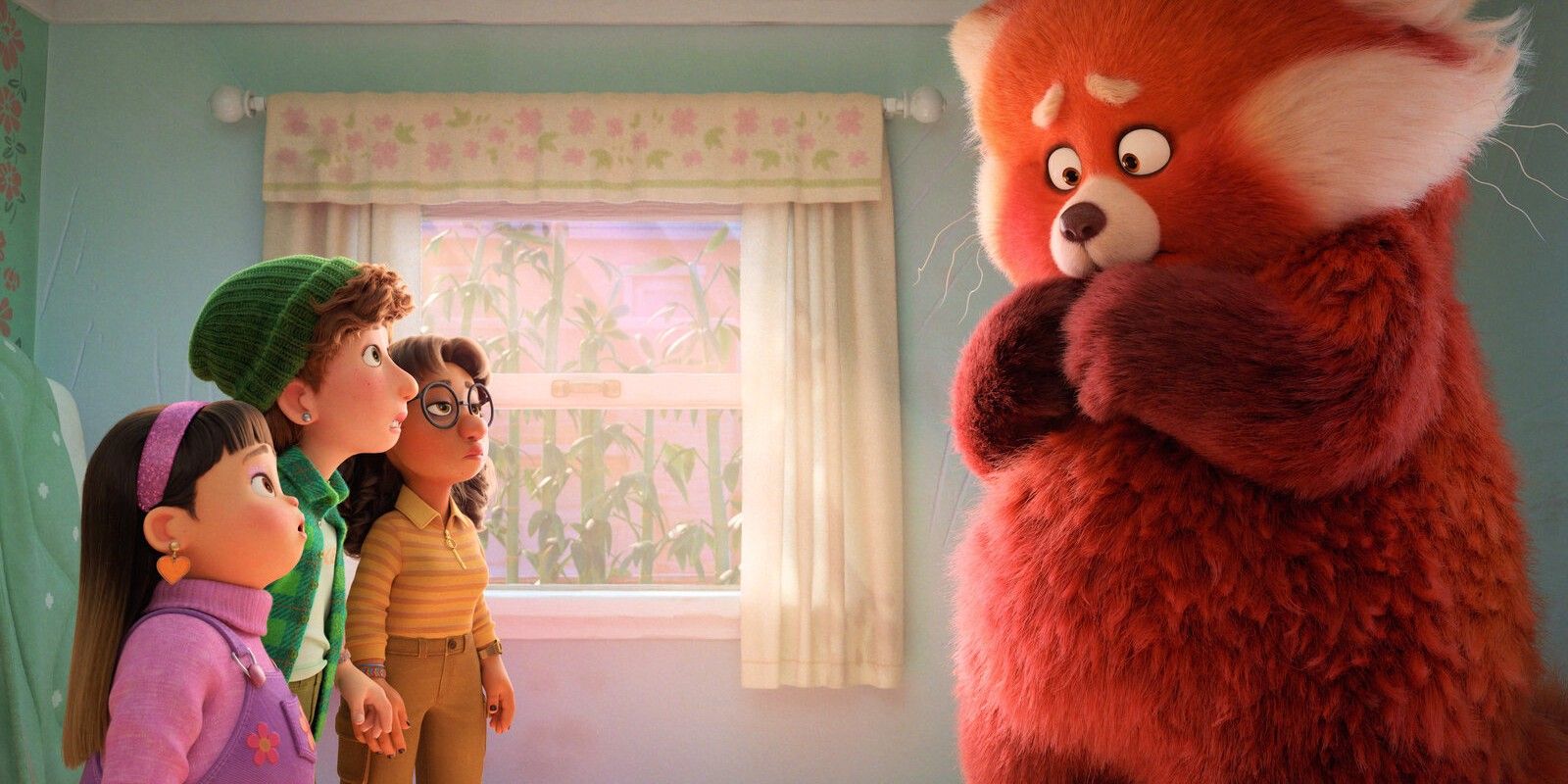Monsters, creatures, and toys; to infinity, and beyond. The Pixar company is known for its wacky characters and stories that make audiences laugh while leaving a prominent message in their wake.
These films are often heart-warming and joy-filled, which lends itself perfectly to the emotional sneak attack lurking around the corner of most – if not all – of the movies in the Pixar canon.
Up (2009)
The premise of this movie seems pretty goofy, with a house flying via balloons and an island full of talking dogs. Under the surface, Carl’s story is much deeper than that. It absolutely goes without saying that the opening sequence of Up, commonly referred to as the "Married Life" sequence (named for its brilliant Michael Giacchino score), is one of the biggest tear-jerkers that the Pixar company has to offer.
The scenes follow Carl and his childhood friend Ellie as they grow up, fall in love, get married, buy a house, and attempt to start a family. It’s here that the emotions start to swell up, as they discover they are unable to conceive, and eventually Ellie passes away, leaving Carl elderly and alone. Absolutely brutal opening to a film, let alone one for children.
Monsters Inc. (2001)
Harvesting screams to power a town full of monsters isn’t something that seems would be a tearjerker, but once a little girl bursts on the scene and protagonists Sully and Mike have to protect her from the dangers of the big scary world that all changes.
While the majority of Monsters Inc. is spent on silly jokes and antics, things take a turn when Sully stops being afraid of Boo (the child in question) and starts to bond with the little girl in his protection. As the story progresses, Sully and Mike do their best to find a way to send Boo home, but by the time they are able to do so it’s too late – they’ve connected, in a deep, familial way, and the audience gets the unfortunate pleasure of watching these two changed beings say goodbye to one another.
Coco (2017)
In a family where music isn’t allowed, Miguel finds himself in the Land of the Dead and unites with his past family to bring it back. In the process, he unearths dire family secrets, and manages to return home to make everything right with his ancestors, and show those who remain how powerful music can be.
A children’s movie about loss and generational trauma? What could be sad about that? It’s fun and theatrical and heart-wrenching all at once, as the audience watches Miguel discover his family secret and help Hector take down Ernesto so that he can return to his family. In one of the final scenes, Miguel sings "Remember Me" to Coco, who becomes responsive for the first time as she hears her father’s song and begins to sing along. Even without the greater context of the film, the scene itself is enough to bring someone to tears, and within the context, it’s even more powerful still.
Toy Story 3 (2010)
In the finale of the incredible trilogy (Toy Story 4 is a whole different thing), the toys are faced with their biggest challenge yet as Andy is preparing to go to college and accidentally donates them to a daycare center. In their quest to find their way back to Andy, they meet Bonnie and resolve to make sure they’re donated to her now that Andy has outgrown them.
What can be said about Toy Story 3 that hasn’t been said already? It was the catalyst for many millennial emotional breakdowns as we, too, had to accept we were outgrowing our favorite toys. The film ending with "So long, partner," has a finality to it that won’t be forgotten any time soon. Also, they put a scene in which the toys accepted their death via garbage incinerator and held hands as they plummeted toward the flames, which is just upsetting.
Onward (2020)
A newer and well-reviewed but much less acclaimed release from Pixar, Onward may be a fun road trip movie with two brothers in a magical world trying to bring their father back to life for one day. Naturally, the spell they’re using for it goes horribly wrong, and they only manage to bring back his legs, and in their quest to finish the job they learn to appreciate each other and the relationship they have.
This movie has an emotional dénouement like any other, with the main character Ian realizing that the father he’s been yearning for has been with him his whole life in his brother Barley. As such, Ian sacrifices his chance to meet his father for the first time in the few moments they have in order to allow Barley to properly say goodbye. It is a bittersweet moment, seen from a distance and unheard by the audience, but the brothers’ connection and love for one another are both evident and endearing.
Finding Nemo (2003)
Not only is Finding Nemo an absolute classic, but it also contains one of the most moving plots of any Pixar film to date – a father traversing the terrifying ocean to be reunited with his son. There are moments spread throughout this film that elicit emotion, from start to finish, to the point where it’s almost self-explanatory.
The myth of Marlin spreading across the outskirts of Australia to reach Nemo in his tank is a highlight, showing the dedication of the father as demonstrated to the son who never could have believed it. Petrified of the ocean itself after losing his wife, Coral, before Nemo hatched, this act of bravery will undoubtedly get you where you live. The ending of the movie, however, is the emotional highlight – where Dory reclaims her memories as she realizes she’s found a home, and Marlin finally learns to let go and trust Nemo to look after himself. It’s powerful and fulfilling and leaves audiences in sad, happy, and loving tears.
The Good Dinosaur (2015)
Look, this one was not well-received and very much flew under the radar upon release, but that doesn’t mean it isn’t just as devastating as the rest of them. In a fictional world where the dinosaurs survived, The Good Dinosaur follows Arlo, an Apatosaurus, who gets lost while chasing a little boy who he blames for his father’s death.
As the movie continues, obviously, the odd pairing bond and form an unspoken connection as they traverse the wildlands together. There are many laughs to be had, and beautiful discoveries, but the real emotional crux of the movie takes the form of heartbreak. Eventually, Arlo realizes that his new friend, who he named Spot, has a family that is looking for him. Instead of reuniting the family, Arlo hides this fact from Spot because he is unable to let go, and then in the very end finally finds the strength to say goodbye. It’s a sad scene that plays out halfway between two friends parting ways and a boy sending away a pet that doesn’t understand why he has to leave – and while it shows Arlo’s emotional growth, it’s still upsetting to see after their big adventure.
Turning Red (2022)
The newest Pixar movie in the canon, Turning Red is a familial dramatic comedy about puberty, coming-of-age, and absolute teenage cringe. It follows Mei, a thirteen-year-old middle school student who discovers she has inherited the ability to turn into a giant red panda when her emotions get out of control – which, thanks to puberty hormones – is a lot.
The film’s description really tells you everything you need to know. It’s a movie based entirely on the conceit of emotion, and the inability to express or process it properly in times when it’s heightened. As Mei learns to regulate her emotions, her mother becomes more insistent that she rid herself of the panda curse instead of embracing it, as she wants to. It’s a classic tale of trauma and conflict between a mother and a daughter that culminates in compromise, love, and acceptance of one another’s needs. Not to mention that thrown in the mix is a myriad of scenes of Mei and her friends feeling absolutely everything, fighting and making mistakes, and making up, in many highly effective scenes that go hand in hand with the main conflict. All in all, if you have a mother, or friends, or went through puberty, it will find a way to make you cry somewhere down the line.

